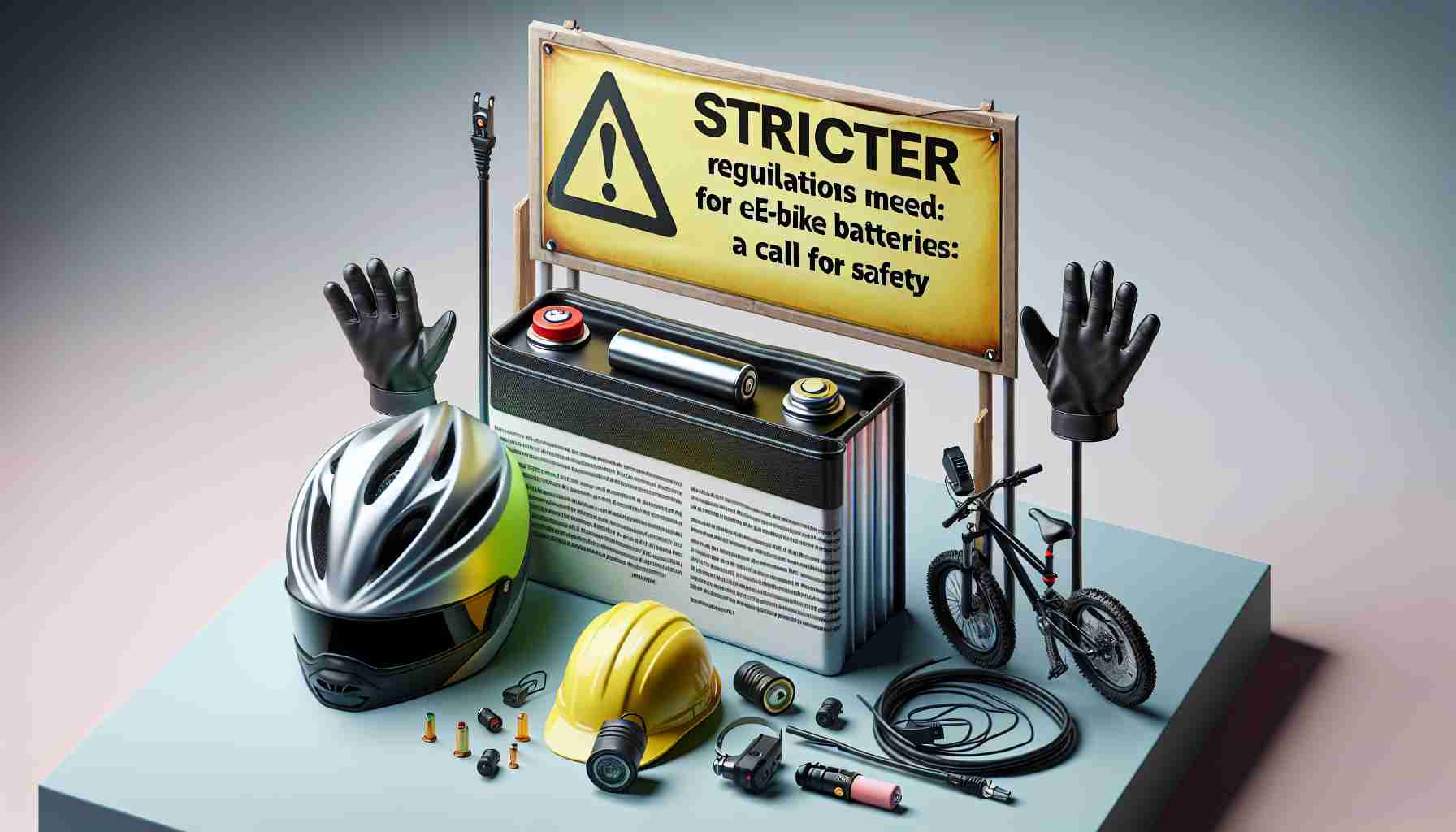The rise of electric bikes, or e-bikes, has brought about a new era of sustainable transportation. With advancements in technology and growing environmental concerns, e-bikes have become an appealing alternative to traditional modes of transportation. However, recent incidents involving substandard lithium-ion batteries have raised concerns about safety and the need for stricter regulations in the industry.
Will Butler-Adams, managing director of Brompton Bicycles, has voiced his apprehension about the quality of electric bike batteries flooding the market. He highlights the alarming rise in fire incidents associated with these batteries and warns that public fear could hinder the acceptance of e-bikes as eco-friendly alternatives. Butler-Adams, along with many others in the industry, believes that regulation needs to catch up with the rapid growth of e-bikes to maintain consumer trust.
The London Fire Brigade has reported an alarming trend of fires related to e-bikes, with an average of one fire every two days in early 2023. These incidents have prompted calls for legislative action, including a proposed bill called the ‘Ten Minute Rule’ presented by Yvonne Fovargue, a Labour MP. The aim of this bill is to eliminate the production of hazardous batteries and ensure consumer safety. It has gained widespread support from 46 organizations, highlighting the urgent need for regulatory intervention in the e-bike industry.
While the e-bike market continues to expand globally, it is essential to address the safety concerns associated with lithium-ion batteries. Poorly manufactured or damaged batteries can lead to fires or explosions, posing significant risks to consumers. Additionally, the proliferation of cheap and unregulated batteries further compounds the problem, putting consumers at even greater risk.
To tackle these challenges, collaboration between regulatory bodies, manufacturers, and industry associations is crucial. It is necessary to develop and enforce stringent battery safety standards to prevent accidents and protect consumers. Furthermore, educating consumers about proper battery usage, care, and disposal is essential in mitigating the risks associated with e-bike fires.
Legislative actions, such as the proposed ‘Ten Minute Rule,’ play a vital role in strengthening industry regulations and ensuring consumer protection. By tracking the pace of the e-bike industry’s growth, these legal frameworks are critical in promoting public safety and maintaining the integrity of this sustainable transportation option.
In conclusion, while e-bikes offer a promising future for eco-friendly transportation, the safety of their batteries is paramount. Stricter regulations, collaborative efforts, and educational campaigns are necessary to prevent accidents and foster consumer trust in this rapidly growing industry.
The rise of electric bikes, or e-bikes, has led to significant growth in the industry. According to a report by Market Research Future, the global e-bike market is expected to reach a value of $38 billion by 2025, with a compound annual growth rate of 9.01% during the forecast period. This growth can be attributed to factors such as increasing environmental concerns, advancements in battery technology, and improvements in infrastructure for e-bike usage.
However, alongside this growth, safety concerns related to e-bike batteries have emerged as key issues in the industry. The incidents involving substandard lithium-ion batteries have raised alarms and prompted calls for stricter regulations. These batteries, if not manufactured or handled properly, can pose significant risks to consumers, including the potential for fires or explosions.
To address these concerns, regulatory bodies are working to establish and enforce stringent battery safety standards. For example, in Europe, e-bike manufacturers must comply with the EN 15194 standard, which sets requirements for safety and performance. Additionally, various countries have established regulations governing the use of e-bikes on public roads, including speed limits, age restrictions, and helmet requirements.
Collaboration between manufacturers, regulatory bodies, and industry associations is crucial in ensuring that e-bike batteries meet the necessary safety standards. By sharing best practices, conducting thorough testing, and implementing quality control measures, the industry can work towards minimizing the risks associated with faulty or poorly manufactured batteries.
Furthermore, educating consumers about battery safety is vital in preventing accidents. This includes providing instructions on proper battery usage, storage, and charging, as well as guidelines for disposing of old or damaged batteries. Public awareness campaigns can help promote responsible e-bike use and reduce the likelihood of incidents caused by user error.
As the demand for e-bikes continues to grow, it is crucial for regulatory frameworks to keep pace with the industry’s development. By implementing and enforcing safety regulations, governments can ensure consumer trust and confidence in the e-bike market. This, in turn, will contribute to the long-term sustainability and success of this eco-friendly transportation option.
Related Links:
- Transporting e-bike batteries safely
- Increase in demand for e-bikes due to COVID-19
- Importance of Battery Management Systems (BMS) in e-bikes
- Recharging e-bike batteries safely







